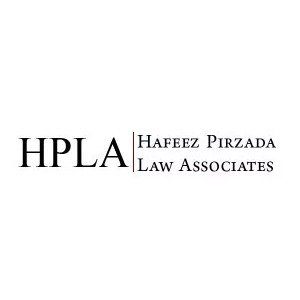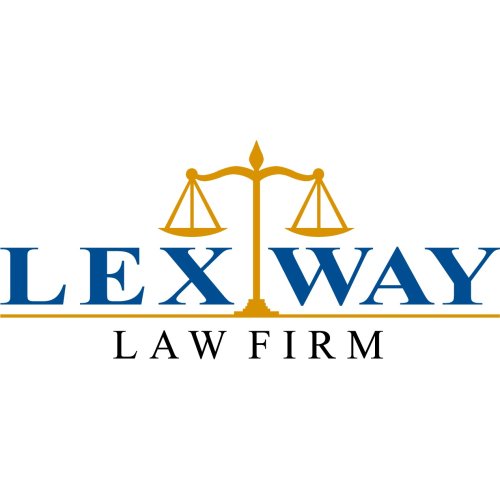Best Land Use & Zoning Lawyers in Karachi
Share your needs with us, get contacted by law firms.
Free. Takes 2 min.
Free Guide to Hiring a Real Estate Lawyer
List of the best lawyers in Karachi, Pakistan
About Land Use & Zoning Law in Karachi, Pakistan
Land use and zoning laws in Karachi, Pakistan, manage how land is developed and used in the city. These laws help maintain organized development, control urban sprawl, protect the environment, and ensure areas are designated for appropriate use, such as residential, commercial, or industrial. With a rapidly growing population, Karachi faces challenges in urban planning and development, making land use and zoning regulations essential to maintaining balance and orderly growth.
Why You May Need a Lawyer
Several situations may arise where you might require legal assistance for land use and zoning issues in Karachi. You may need a lawyer if you are buying or selling property and want to ensure your transaction adheres to local zoning laws. Legal help might also be necessary if you encounter disputes with neighbors or local authorities regarding land use, need to secure permits for construction or expansion projects, or face challenges in understanding your rights and obligations under current zoning regulations.
Local Laws Overview
Karachi's land use and zoning laws are primarily governed by the Sindh Building Control Authority (SBCA), Karachi Building & Town Planning Regulations, and the Sindh Land Revenue Act. Key aspects of these laws include designating specific zones for residential, commercial, industrial, agricultural, and mixed-use purposes. They also dictate regulations for building heights, density, and setbacks, which are vital for maintaining the urban landscape. Compliance with environmental regulations and property usage rules is crucial to avoiding legal issues.
Frequently Asked Questions
What is zoning?
Zoning refers to the laws and regulations that govern how land within certain areas can be used. It helps determine which areas are suitable for residential, commercial, industrial, or mixed-use activities.
Can I convert my residential property into a commercial one?
Converting a residential property into a commercial one generally requires rezoning approval from local authorities. You will likely need to apply for a zoning variance or special permit with the relevant municipal office.
What should I do if I receive a zoning violation notice?
If you receive a zoning violation notice, consult with a lawyer specializing in zoning law to understand your options and rights, and work towards resolving the issue with local authorities.
How do I check the zoning of a particular piece of land?
You can verify zoning information through the Sindh Building Control Authority (SBCA) or the local town planning office, where zoning maps and plans are available.
What is a zoning variance?
A zoning variance is a legal exemption that allows property owners to use their land in a way that deviates from current zoning laws. Obtaining a variance often requires approval from local zoning boards and may involve demonstrating hardship or need.
Are there specific zoning laws for industrial areas?
Yes, industrial zones have specific regulations concerning the type and extent of industrial activity allowed, environmental considerations, and the maintenance of appropriate safety and health standards.
What is the penalty for violating zoning laws?
Penalties for violating zoning laws can vary but may include fines, orders to cease operations, or mandates to alter or remove unauthorized structures.
How are zoning disputes usually resolved?
Zoning disputes can be resolved through negotiation, mediation, or litigation. Legal advice is recommended to navigate these situations effectively.
Can zoning laws change, and if so, how frequently?
Zoning laws can change due to urban development, policy shifts, or city planning initiatives. The frequency varies, but major updates or revisions typically follow comprehensive planning processes and public consultations.
What are "nonconforming uses" in zoning law?
Nonconforming uses refer to properties or activities that were legally established under previous zoning regulations but do not conform to new or current laws.
Additional Resources
For further assistance, consider consulting the following resources:
- Sindh Building Control Authority (SBCA): They provide guidance on building regulations and zoning requirements.
- Karachi's local town planning offices: They can offer detailed zoning maps and plans.
- Legal aid services in Karachi: These organizations can assist if you require legal representation or advice.
Next Steps
If you need legal assistance for land use and zoning issues, consider the following steps:
- Conduct initial research to understand the specific zoning requirements and issues related to your property.
- Consult with an experienced land use and zoning lawyer who can offer professional guidance based on local laws and your unique circumstances.
- Contact local authorities or the SBCA for any relevant applications, permits, or documentation related to zoning decisions.
- Prepare all necessary documentation with your legal advisor for any proceedings or applications concerning land use and zoning.
Lawzana helps you find the best lawyers and law firms in Karachi through a curated and pre-screened list of qualified legal professionals. Our platform offers rankings and detailed profiles of attorneys and law firms, allowing you to compare based on practice areas, including Land Use & Zoning, experience, and client feedback.
Each profile includes a description of the firm's areas of practice, client reviews, team members and partners, year of establishment, spoken languages, office locations, contact information, social media presence, and any published articles or resources. Most firms on our platform speak English and are experienced in both local and international legal matters.
Get a quote from top-rated law firms in Karachi, Pakistan — quickly, securely, and without unnecessary hassle.
Disclaimer:
The information provided on this page is for general informational purposes only and does not constitute legal advice. While we strive to ensure the accuracy and relevance of the content, legal information may change over time, and interpretations of the law can vary. You should always consult with a qualified legal professional for advice specific to your situation.
We disclaim all liability for actions taken or not taken based on the content of this page. If you believe any information is incorrect or outdated, please contact us, and we will review and update it where appropriate.

















